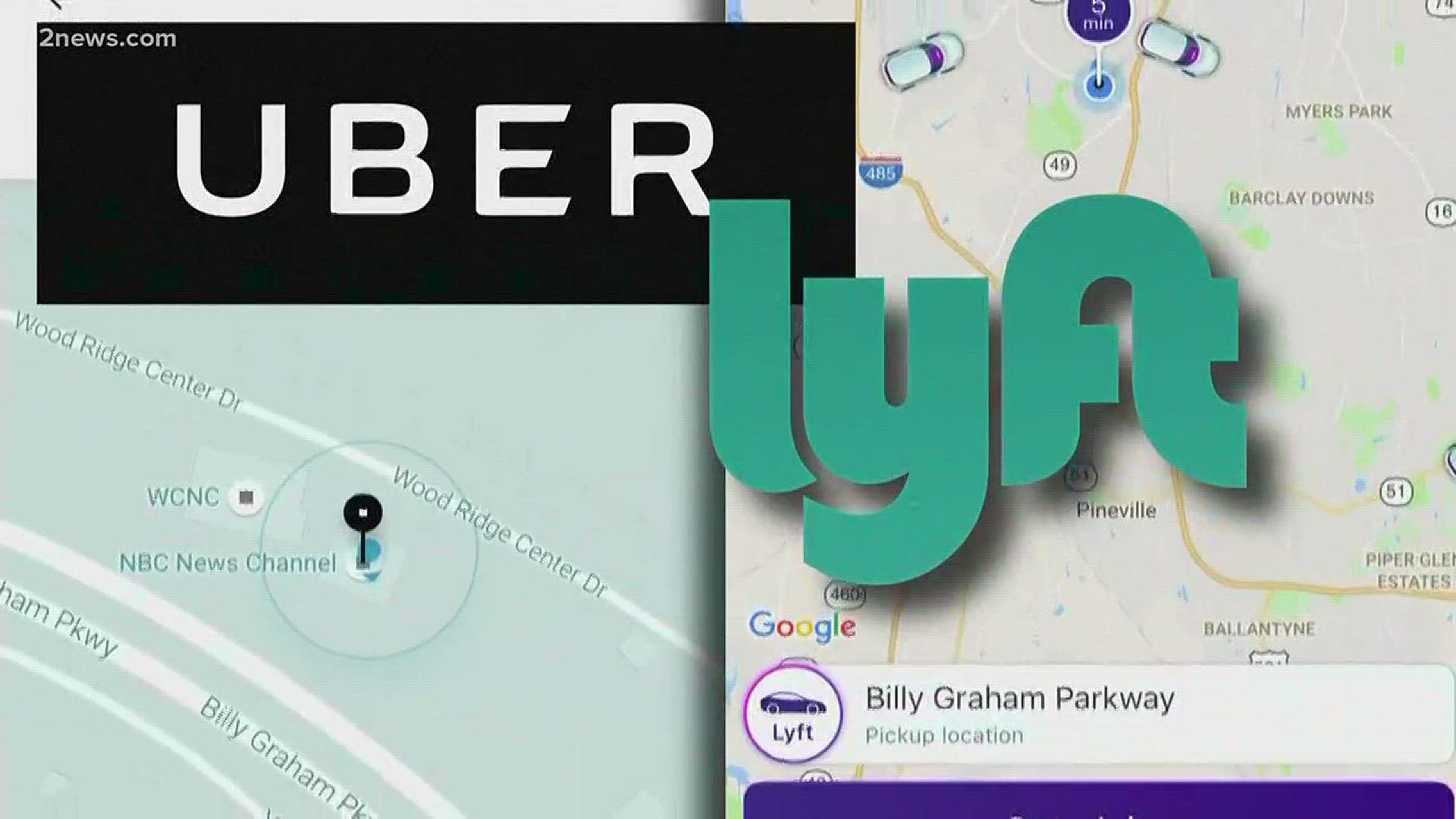Sitting near a piano and art supplies in her Phoenix area home, “Carol” recently described how she spent several months trying to collect child support from her ex-husband before giving up. The working mother, who asked not to be identified to protect her two children, had obtained a child support order from Maricopa County Superior Court.
But the document seemed worthless.
“My options are just very limited,” she said.
Her ex-husband was a ride-share driver in Phoenix for Lyft. Carol knew he made decent money.
But ride-share drivers are classified as independent contractors and therefore not subject to automatic wage garnishments by the companies they drive for. Because of this classification, when a court issues an “order of assignment” for child payment, the order goes directly to the driver, not the company.
Barring intervention by the Arizona Department of Security or a family court judge, it is less likely these parents will pay child support even though they are obligated by law.
A spokesperson for Lyft declined to provide an interview to discuss Carol’s situation and wage garnishment policies. A company spokesperson emailed a statement that says, “This type of information (child support) is only given to drivers that need to pay for child support since this is directly with them.”
It's an old problem packaged in a new industry, said Ashley Donovan, chair of the State Bar of Arizona Family Law Rules and Procedures Committee, and an East Valley family law attorney.
“I think there has always been a segment of the population that works as independent contractors, many of them in an attempt to avoid their obligations,” Donovan said.
Broader legal debates are taking place in states around the country about how Uber and Lyft drivers should be categorized for tax purposes and whether they should be considered W2 employees instead of 1099 independent contractors, Donovan said.
In the meantime, parents in Arizona fighting to get money from "deadbeat" ride-share drivers have options. They involve making appeals to the AZ DES or through family court.
“It definitely takes a lot more leg work than someone who has a pay stub,” Donovan said.
Resources for parents in Arizona who are owed child support include the Fresh Start Women's Foundation, the Arizona Bar Foundation, and the Maricopa County Court self-service center.
According to Donovan, DES has the ability to contact Uber or Lyft and demand to know information of how much a driver was paid. The company would be obligated to provide the information. DES could establish a child-support order based on the income, Donovan said.
But Carol claims in her case it wasn't that easy.
“I provide DES what they request. And I wait. I don’t receive any follow-up,” Carol said. “When I did speak with someone, the representative at DES I spoke with indicated he had previous experience with other parents with child support orders where the person ordered to pay worked for shared ride companies and they had previously attempted to collect from shared ride companies with no success.”
Carol’s ex-husband has since moved out-of-state and she doesn’t expect to recoup wages he made in Arizona as a driver.
A spokesperson for DES says the agency cannot comment on individual cases. She says when child support cases involving ride-share drivers are brought to the attention of DES, the agency issues withholding orders to the companies. The companies have responded by garnishing wages, she said.
“DES has issued income withholding orders to ride share companies, including Uber, and they are responsive to requests for information from DES and work with the agency on case management efforts," said Connie Weber, deputy press secretary for AZ DES. Weber later added that Lyft is also responsive to requests.
A spokesperson for Uber also says the company cooperates with state agencies and is currently issuing deductions to “several active partners” in the Phoenix and Tucson areas.
“Uber deducts garnishments from Driver payments when we are served with either a Child Support Order, a State or Federal Tax Levy, or a Garnishment Order issued by a State Court for Personal Debt,” said Stephanie Sedlak, a spokesperson for Uber.
But Donovan says Uber's statement is "contrary" to her experience as family court attorney.
"My experience has been that Uber does not withhold child support payments because the drivers are self employed. It has been approximately 6 months since my last case with an Uber driver, so I don't know if their policy has changed," Donovan said.
Sedlak issued a response to Donovan's claim.
"Regarding the attorney you mention, we're not sure why this attorney is stating that Uber does not comply," Sedlak wrote in a email to 12 News. "It may be because the Order issued on his particular Uber driver is not active on the app and therefore there are no earnings to make a deduction from."
If there are success stories of parents securing wage garnishments from drivers, they don't often come without extra time and attorneys fees.
Given the growing influence of Arizona's ride-share industry, Carol wants state lawmakers to consider requiring companies to garnish wages from all drivers who owe child support just like W2 employees. She points out that the technology makes it possible to track exactly how much a driver makes on a daily basis.
“There's a paper trail," Carol said. "Even though there’s a paper trail, they (companies) are not required to provide that information to the state because they’re independent contractors. I think that’s what needs to change.”

